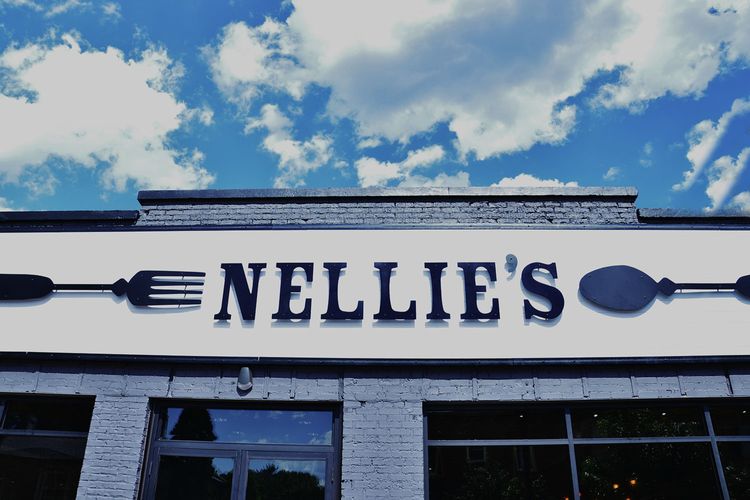
Are you thinking of buying a new home? If so, congratulations! This is a huge milestone. Owning your own home is a fantastic accomplishment, but also a big responsibility.
When you're ready to take the plunge and purchase a new home, there are a few things you should do to prepare. Doing your research, arranging the finances, and finding the right real estate agent and lender are all critical steps to take before you continue shopping for your dream home. Here are some tips to help you prepare:
Check and Improve Your Credit Score
Your credit score contributes towards getting approved for a loan. Lenders use this score to determine if you’re a high-risk or low-risk borrower. The higher your credit score, the better interest rate you’ll qualify for on your mortgage.
A lot of people think that not having any credit is a good thing when buying a home. However, this isn’t the truth because you could end up having to pay a much higher interest rate.
If you don’t know yours, you can get it for free from several websites including Credit Karma and Credit Sesame. Once you know your credit score, take steps to improve it if necessary. You can improve your credit score by paying your bills on time, keeping your debt levels low, and avoid opening new credit accounts. You can also talk to your lender to see if they have any suggestions to help improve it as well.

Getting Your Finances in Order
The first step in preparing to buy a new home is to get your finances in order. Once you have your home shopping budget in mind, start saving for a down payment and closing costs. A good rule is to save up at least 20% of the purchase price for a down payment. This will help you avoid having to pay private mortgage insurance (PMI) and can also help in lowering your interest rate.
Doing Your Research
The next step in preparing to buy a new home is to do your research. Start by evaluating your housing needs and wants. Make a list of must-haves, nice-to-haves, and deal-breakers. This allows you to focus your search and narrow down your options. It is also important to research the different types of mortgages available and find the one that best fits your financial situation.
Finding the Right Real Estate Agent
Once you've done your research and you're ready to start shopping for a new home, it's time to find a real estate agent. Look for an agent who is knowledgeable about the area you're interested in and who has experience helping buyers find and purchase homes.
A good real estate agent is indispensable when you’re buying a new home. An agent can help you find homes that fit your budget and your needs, and can negotiate on your behalf. When you’re ready to start looking for an agent, ask friends and family for recommendations. Once you have a few names, interview each agent to see if they’re a good fit.
Find Suitable Loan Programs
Not all loans are right for every borrower who is looking to buy a home. You’ll need to research different loan programs to find the one that’s best for you. You’ll want to circle back around and figure out what you can afford before you start looking at homes.
Some things to consider include:
Down payment requirements
Interest rates
Loan terms
Whether you need a fixed-rate or adjustable-rate loan
Make sure to reach out to our recommended lender, Riley Pitt, at Movement Mortgage if you have any questions around your mortgage financing needs. There are a lot of mortgage loan programs and it's easy to get overwhelmed, especially if it is your first time buying a home. Riley will walk you through the process and help you get pre-approved so you know your price range and budget.
Riley's website: https://lo.movement.com/riley-pitt/home
Consider Your Budget and Plan Accordingly
It’s important to have a budget and stick to it when you’re preparing to buy a new home. Find out how much you can spend on a monthly basis, taking into account your current income, debts, and expenses. Once you have a budget, you’ll be able to narrow your search to homes that fit your price range.

Keep Your Down Payment Ready
You’ll pay your down payment upfront to purchase your home. The down payment is typically a small percentage of the purchase price. For example, if you’re buying a $200,000 home, you may need to put down $10,000, or 5%. For first time homebuyers, lenders normally only require a 3.5% down payment.
Saving a down payment for your home isn’t always easy, but there are things that can make it easier. One option is to set up a separate savings account and automatically transfer a fixed amount of money into it each month. Another option is to use a down payment assistance program. Some programs offer grants or low-interest loans that can help with the down payment. You can always ask your lender or loan officer what programs are available to you in helping assist in purchasing a home.
Get Pre-Approved
Pre-approval is different from pre-qualification. Pre-qualification is how much you could borrow, based on the information you provide. Pre-approval is a commitment from a lender to loan you a certain amount of money.
Getting pre-approved for a loan is a good idea because it will give you an rough idea of how much you can set aside for a home. It can also help you move quickly when you find a home you want to buy. Riley, our recommended loan officer, is a great resource to reach out to in order to see how much you can get pre-approved for.
Consider Your DTI Ratio
The debt-to-income ratio is the debt you have compared to your income. Lenders use this ratio to determine if you’re able to repay a loan. A higher ratio indicates more debt and less ability to repay, while a lower ratio means you have less debt and more ability to repay.
To calculate your debt-to-income ratio, add up all your monthly debt payments and divide that number by your gross monthly income. For instance, if your monthly payments are $1,000 and your monthly income is $4,000, your debt-to-income ratio would be 25%. Normally lenders want you to be below 50% or sometimes 43% depending on what type of loan program you choose.
Making an Offer
Once you've found the perfect home, it's time to make an offer. Your agent will help you identify how much to offer based on the current market value of the home and recent comparable sales. Your offer will also include a contingency, or conditions that must be met in order for the sale to go through.
Common contingencies include a home inspection, financing, and appraisal. Once your offer is accepted, you'll move into the home inspection phase. This is when you'll hire a professional to examine the property and look for any potential problems.
Buying a new home can be a big and difficult decision. There is a lot to think about and plan for. If you take some time to prepare, you’ll be in a good position to find your perfect dream home that offers you the right value for the hard-earned money you spent on it.



